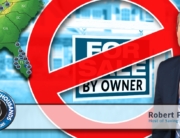You have paid off debt, saved money and made sacrifices to buy your home. You have began making payments, but are wondering if there are still ways to save money? The answer is a definite, YES!
Even if you are enjoying a good interest rate and a refinance is not in the cards, there are still ways to save. There are costs that you can control. But, you must do your part.
With items like property taxes, insurance rates and more we too often let the rates increase with out giving them a second thought.
Financial expert Robert Palmer explains that with the advent of “auto-pay” too many homeowners fail to even notice the payment because they are not having to write a check. The insurance is paid automatically or even more important as part of the monthly payment so its just doesn’t jump out at us when the coverage costs edge up year after year.
Robert stresses to consumers that they need to have a timely check up on all of your bills, especially those of home ownership. There are taxes, insurance, private mortgage insurance and of course cable or satellite and phone service.
Check on those amounts and call the provider’s periodically and seek other ways to control these costs.
Lets check out three main ways you can help yourself save money on your monthly house payments:
Reducing The Taxes of Homeownership
One of your earliest lessons from your parents or grandparents was “there are two things everyone must accept –death and taxes”. Neither are pleasant, but there’s no way of bypassing them.
However, with the county property tax on your home, you have some say in the final amount you have to pay with a little effort on your part.
Most people just accept the property appraiser’s tax calculation to be accurate. But remember, the appraiser is using a pretty broad stroke when determining the amount of taxes. There is no way to totally inspect each and every home in a county and assess it’s true value.
You can challenge the assessed valuation as quoted by the county. There are forms to fill out and there is a process, but it can be done. You will want to question such things as: Is the square footage accurate? Are there amenities listed that your home does not have? Is the age of the home properly recorded? Are the home prices used by the appraiser accurate with the homes in your neighborhood?
You can ask for the formulas used by the appraiser’s office and check things out for yourself and then decide if you want to challenge the tax amount on your home.
Also keep in mind during this process that when the economy turned sour a few years back, your home may not have been given a tax reduction even though your home was worth far less than before the bust. Therefore when the economy began to rise, your rates did too – and were pushed even higher when you figure they were never lowered enough in the beginning.
Let’s not forget the Homestead Exemption. The Homestead Exemption does a lot of positive things for an owner in Florida if that owner resides in the home. One of the huge benefits is a $50,000.00 reduction in the overall established value of the home. To qualify for the exemption you must have proof that you were in the home as owner prior to December 31 of the previous year and provide a power bill and a valid drivers license indicating the address of the home in question. All of this to prove that this home is your primary residence.
Lately counties have become a little more aggressive in taking away the exemption. In past years if you purchased a home, the county would leave the existing reduction enjoyed by the previous owner in place until you filed for your own exemption. But now, the counties are cracking down and taking away the reduction if you miss their deadline which varies throughout the state. What’s more, in some cases they will take away the homestead reduction for the previous year which causes your rate to be even higher.
It is highly important that you are aware of the all of the exemptions available under the law and the deadlines in which to register. There are also exemptions for those suffering from blindness, those who served our country, disabled veterans and many other categories. So, make it a priority to communicate with the county and check out all reductions available to you.
There is also “portability” now available in Florida. This means if you have homestead exemption, it limits the rise in the taxable value of your home on the tax records from year to year. There is a cap in place each year and those caps accumulate over the years. The good thing is you can take those caps with you to your next home. You have to follow the rules and must be up-to-date on all county programs as they do vary.
Homeowners Insurance
The usual scenario is that a company will lure you in with very low rates for that first year. But as time goes on the rates escalate higher and higher and most people never shop around for the better rate. This can have a major impact on your monthly house payment. So everyone who reads this article should act now to find out their costs for homeowners insurance and then call shroud n to at least three other carriers in the state to gather their rates. Keep in mind that you can change carriers anytime and your current company must rebate any unused premiums.
Make sure you are making a fair comparison. Have all your coverages written down when pricing out other companies.
Should you make a change, make sure your lender is informed of the new carrier to make sure that escrow pay outs are going to the right company. Keep track of the insurance whether you pay it or the bank pays from escrow. Why ? Well, if the bank records show that you have no effective coverage on your house, the bank will force their insurance on you. It is called “Forced Place Insurance”. This is always very costly.
You can learn more about homeowners insurance and compare companies here.
Private Mortgage Insurance
The final factor that can reduce your monthly home payment is the Private Mortgage Insurance. In previous articles we have discussed “PMI” which lenders charge when you lack sufficient equity in the home.
Once you have lived in the home for a few years you may have gained equity through rising home values in the area. Most of the time when petitioning your lender to drop the PMI Coverage based on increased value you are in for the fight. And you no will doubt have to bring a paid appraiser to give an assessment. But once your balance gets down to 78% of the original balance, it is much easier.
Some lenders also have provisions in their agreement that do not allow removing the insurance until a time period passes. This can be three years, four years, even 5 in some cases. Usually, after three or four years, you should begin looking into your equity situation.
However, if you have FHA Financing, the insurance will not go away. You can sometimes refinance as we discussed in another article in this series and take advantage of new lower FHA rates.
Conclusion
In summary, remember you can take an active role in keeping your house payment affordable,le and not escalating by watching the property taxes, owners insurance and private mortgage insurance.





